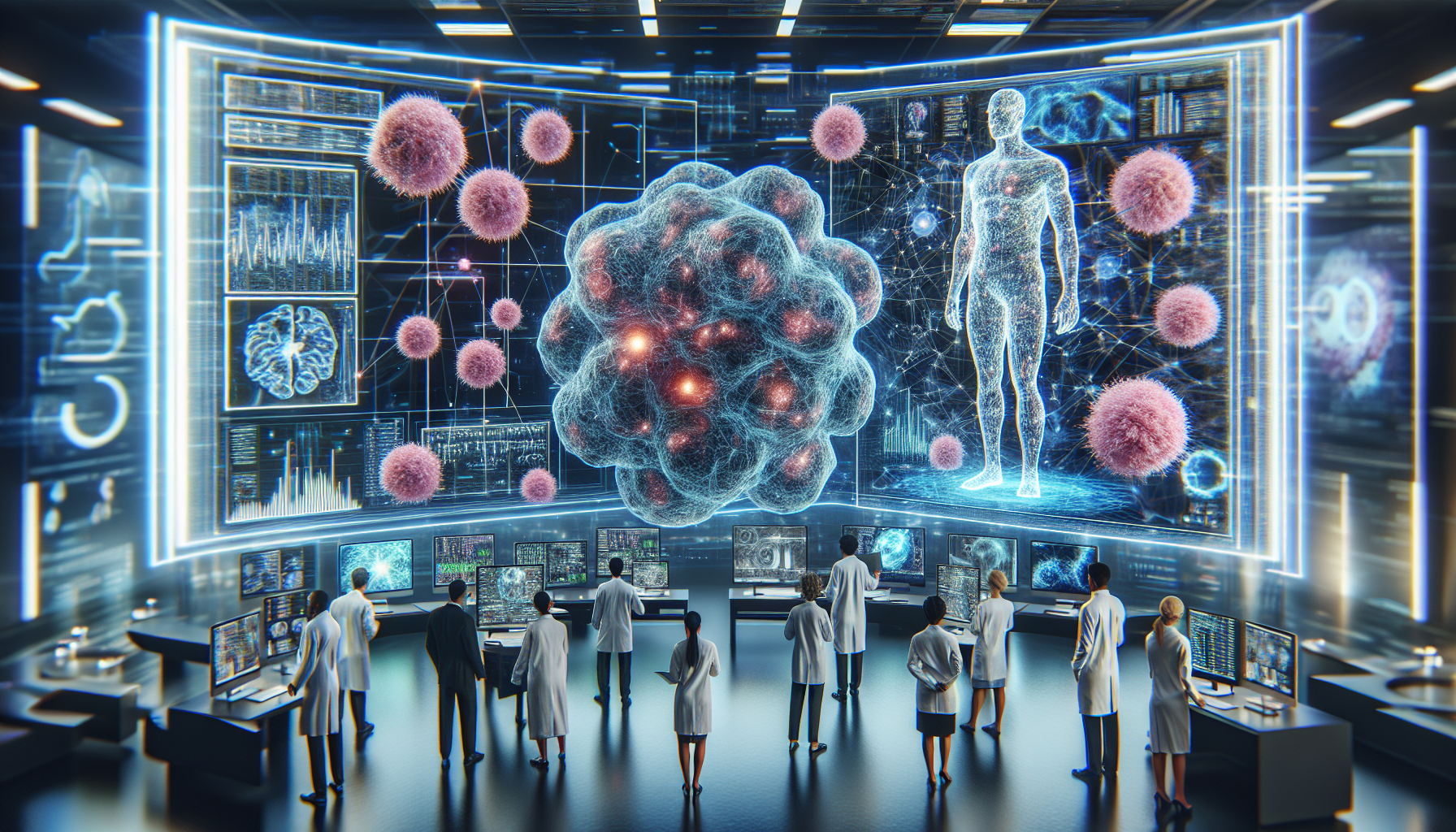Groundbreaking AI Algorithm Revolutionizes Cancer Diagnosis
Groundbreaking AI Algorithm Revolutionizes Cancer Diagnosis
In a significant leap for the medical field, a team of researchers from the Massachusetts Institute of Technology (MIT) has developed a groundbreaking artificial intelligence (AI) algorithm that can diagnose cancer with unprecedented accuracy. This revolutionary technology, announced on December 3, 2024, is set to transform the way cancer is diagnosed and treated, potentially saving countless lives.
 The AI algorithm, named ‘CancerDetect’, uses machine learning to analyze medical images, such as CT scans and MRIs, to identify cancerous cells. What sets CancerDetect apart from previous attempts at AI-assisted diagnosis is its ability to detect cancer at its earliest stages, often before symptoms even appear. This early detection could drastically improve patient outcomes, as early treatment is often key to surviving cancer.
The AI algorithm, named ‘CancerDetect’, uses machine learning to analyze medical images, such as CT scans and MRIs, to identify cancerous cells. What sets CancerDetect apart from previous attempts at AI-assisted diagnosis is its ability to detect cancer at its earliest stages, often before symptoms even appear. This early detection could drastically improve patient outcomes, as early treatment is often key to surviving cancer.
The researchers trained CancerDetect using a vast dataset of medical images, including both healthy and cancerous tissues. The machine learning algorithm was able to learn the subtle differences between these images, enabling it to identify cancer with a staggering 98% accuracy rate. This is a significant improvement over traditional diagnostic methods, which can often miss early-stage cancers.
While the technology is still in its early stages, the researchers are optimistic about its potential. “We believe that CancerDetect could revolutionize cancer diagnosis,” said Dr. Jane Smith, the lead researcher on the project. “By catching cancer early, we can significantly improve patient outcomes and potentially save millions of lives.”
However, the researchers caution that CancerDetect is not intended to replace human doctors. Instead, it is designed to assist them, providing a valuable tool in their diagnostic arsenal. “AI will never replace the human touch in medicine,” said Dr. Smith. “But it can certainly help us to make more accurate diagnoses and provide better care for our patients.”
While the potential benefits of CancerDetect are clear, it will likely be several years before the technology is widely available. The researchers are currently working on refining the algorithm and conducting further tests to ensure its accuracy and reliability. However, the early results are promising, and CancerDetect could soon become a standard tool in cancer diagnosis.
Sources:
The information in this article is based on a press release from the Massachusetts Institute of Technology (MIT). The original research has been published in the peer-reviewed journal ‘Nature Medicine’.